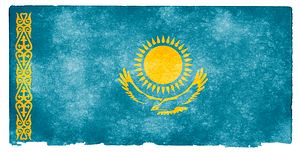The Council of State, the highest administrative court in France, canceled an extradition order against ex-banker Mukhtar Ablyazov, a decision that resulted in his release from custody, a major diplomatic and political disappointment for the government in Kazakhstan, where he is accused of having embezzled billions of dollars.
The court said in its December 9 decision that the Russian and Ukrainian requests for the extradition of Ablyazov were politically motivated. In the absence of a treaty on mutual extraditions between France and Kazakhstan, analysts had speculated that Russian and Ukrainian prosecutors were acting as proxies of the Kazakh government in an effort to bring Ablyazov back to Kazakhstan.
In September 2015, then-Prime Minister Manuel Valls signed an extradition order for Ablyazov, who had been captured by French special forces in Cote d’Azur in July 2013, triggering immediate requests of extradition from Kazakhstan, Russia, and Ukraine. The Council of State overturned the government order because it found that Kazakhstan in fact pressured, for political reasons, Russian and Ukrainian prosecutors to obtain extradition.
“The Council of State considers that the extradition application was requested for a political purpose. It therefore could not legally be granted,” the court said.
In the days leading up to the decision, international human rights groups expressed their doubts regarding the legitimacy of the extradition requests and the possibility that Ablyazov could face torture outside of France.
“If extradited, he may not only not receive a fair trial in Russia, but be eventually sent back to Kazakhstan,” Amnesty International wrote in a statement.
“France must refrain from extraditing a person to a country where there are substantial grounds to believe he risks being subjected to torture,” Nils Melzer, the UN’s special rapporteur on torture, said on December 7.
Ablyazov, 53, has been a staunch opponent of President Nursultan Nazarbayev since 2001, when, together with other powerful figures, he created the Democratic Choice of Kazakhstan party. Ablyazov, who had formerly served as minister of energy, fell from grace together with his fellow party colleagues.
After serving 10 months in jail, Ablyazov reached a tacit agreement with Nazarbayev: he would avoid further prosecution and state pressure if he left politics altogether. Ablyazov agreed and concentrated his efforts in building up his bank, BTA. Once the largest financial institution in the country, BTA Bank suffered the consequences of the Global Financial Crisis of 2007-08, accumulating toxic assets and bad debt.
Sensing a worsening environment, Ablyazov fled to London in 2009. The BTA Bank management in Kazakhstan accused him of embezzling around $5 billion shortly thereafter, kickstarting a long man hunt – and justifying first the bailout and then the government takeover of the bank.
First, he was granted asylum in the UK, but as legal cases piled up against him the High Court in London found him guilty on various accounts of financial irregularities and contempt of court. Ablyazov fled before serving his 22-month UK sentence and remained at-large until 2013, when, through a concerted effort, European police forces closed in on him and his family.
At the end of May 2013, a private plane paid for by the Kazakh embassy in Austria left Rome towards Almaty, Kazakhstan’s old capital. On board were Alma Shalabayeva, Ablyazov’s wife, and their daughter Alua. Special forces of Italy’s Interior Ministry had swarmed the villa where they lived looking for Ablyazov. When they could not find him, they took his wife and daughter.
The whole deal became a political scandal in Italy, as the Interior Minister said he was unaware of the operation. Later, the Italian government said it had wrongfully expelled Shalabayeva and her daughter.
But just as the “Shalabayeva affair” was heating up in Italy, French special forces tracked down Ablyazov in Cannes.
On a July afternoon, in an operation similar to a Hollywood script, French police waited for Ablyazov’s gardeners to exit his property, seized their vehicle and changed into gardeners’ clothes to re-enter and arrest Ablyazov, incredulous in his bedroom.
In just over two months, Ablyazov and his family were all in custody. It’s hard in this respect to dismiss the possibility that the special police operations had been masterminded, directed, or at least instigated from Kazakhstan.
Fast-forward to 2016: at the end of November, the chief prosecutor of the Italian court in Perugia wrapped up the investigation on the Shalabayeva affair, concluding that it consisted a violation of human rights because the woman and her daughter were illegally kidnapped and expelled. Now, two high officials of the Italian police will have to face trial. Nine others, among them three Kazakh diplomats, were also accused, but their diplomatic immunity protects them from prosecution.
Just two weeks later, the French court dismissed the extradition order against Ablyazov and set him free. This could be the final page in a long chapter for Ablyazov, who is still wanted in the UK and Kazakhstan. Whether the banker-turned-opponent will now pursue revenge against Nazarbayev or quietly retire away from his homeland and foreign prosecutors, his release will remain a major headache for the elite in Astana.

































